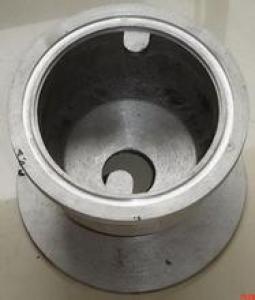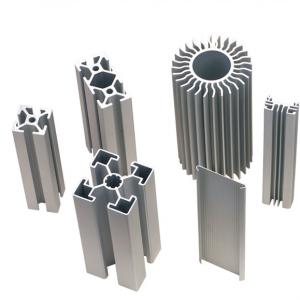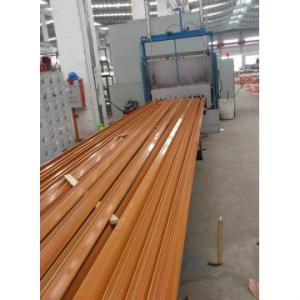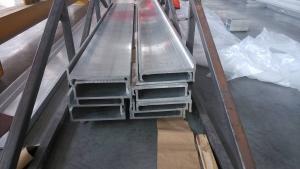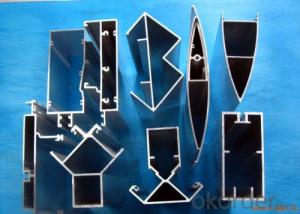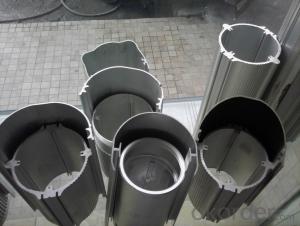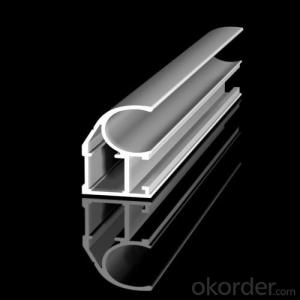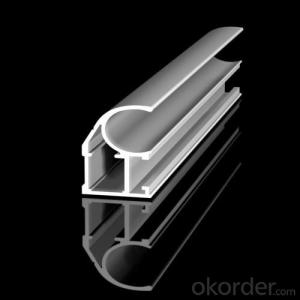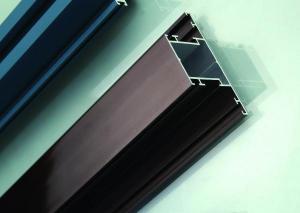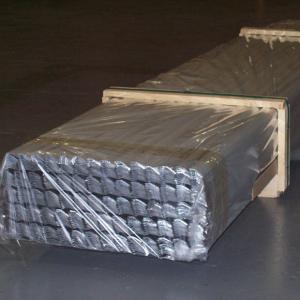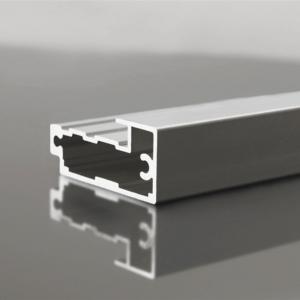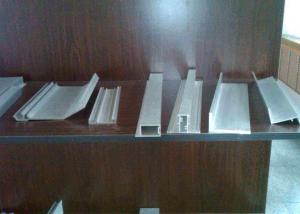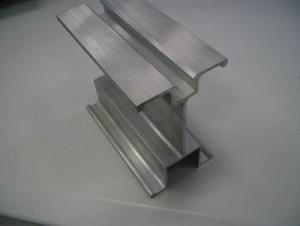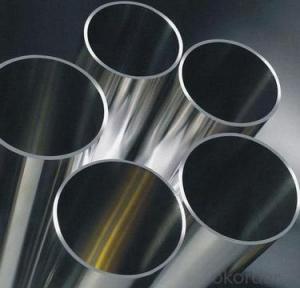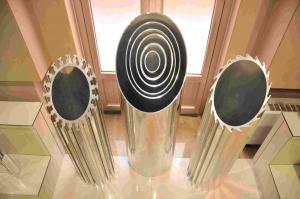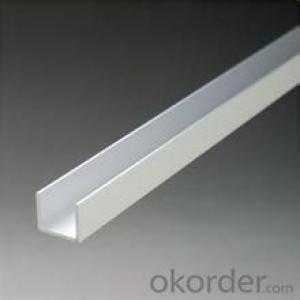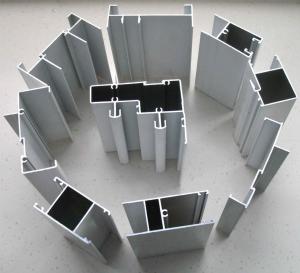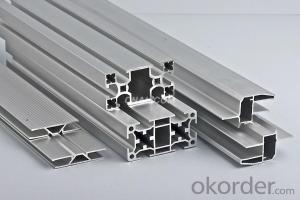Cast Aluminum
- Loading Port:
- China Main Port
- Payment Terms:
- TT OR LC
- Min Order Qty:
- -
- Supply Capability:
- -
OKorder Service Pledge
OKorder Financial Service
You Might Also Like
Features of rotomolding:
1) The cost of plastic rotational molding is low. For products in the same size, the cost of rotational mold is about 1/3 or 1/4 of that of blowing or injection mould.
2) Plastic rotational products have strong edge, from rotational molding the edge of the product can be more than 5mm, so the problem that the edges of hollow products are thin is completely solved.
3) In plastic rotational molding, variety of inserts can be placed.
4) The shape of rotational molding products can be very complex, and the thickness can be more than 5mm.
5) Rotational molding products can be produced fully closed.
6) Rotational molding products can be filled with foam material, to achieve thermal insulation.No need to adjust the mold, the thickness of rotational molding products can be adjusted.
7) No need to adjust the mold, the thickness of rotational molding products can be adjusted.
8) The products are hollow and seamless, but the thickness can be adjusted, so that the products are with high strength.
9) It’s available to deal with a variety of surface patterns and produce products in various colors. The treatment of anti-UV and anti-aging is possible; the simulation results of many kinds of stone and wood are also available. Our company has large imported CNC machine centers. With more than 20 years’ experiences of making aluminum rotational moulds, we can guarantee there is no needle porosity on the surface. We have been producing custom rotational products in various dimensions and shapes for domestic and foreign customers. We can produce molds according to customers’ drawing and design, making all kinds of rotational products for them.
- Q:What materials are used for aluminum profile packing?
- if the surface requirements is not high, three point type packaging is also common, some products need to add pearl carton / wooden packaging. Shanghai aluminum products Co., Ltd.
- Q:Are aluminum profiles suitable for earthquake-resistant structures?
- Yes, aluminum profiles can be suitable for earthquake-resistant structures. Aluminum is a lightweight and high-strength material that offers several advantages for earthquake resistance. Firstly, its high strength-to-weight ratio allows for the construction of lighter and more flexible structures, which can better withstand seismic forces. This characteristic is particularly important as it reduces the overall mass of the structure, minimizing the inertia forces during an earthquake. Furthermore, aluminum profiles have excellent corrosion resistance, ensuring the long-term durability and structural integrity of earthquake-resistant buildings. This is crucial as corrosion can weaken the structure over time, making it more vulnerable to seismic events. In addition, aluminum's malleability allows for the creation of complex and customized profiles, enabling architects and engineers to design structures that can effectively absorb and dissipate seismic energy. This flexibility is essential in earthquake-resistant design, as it allows the structure to deform and absorb the energy generated during an earthquake, reducing the impact on the building and its occupants. Moreover, aluminum is a sustainable material, as it is highly recyclable and requires significantly less energy to produce compared to other metals. This makes it an environmentally friendly choice for earthquake-resistant structures. However, it is worth noting that the suitability of aluminum profiles for earthquake-resistant structures also depends on various factors, such as the specific design requirements, local seismic conditions, and the expertise of the engineers and architects involved. Therefore, a thorough analysis and evaluation of the specific project requirements and conditions should be conducted before determining the suitability of aluminum profiles for earthquake-resistant structures.
- Q:Are aluminum profiles suitable for food processing applications?
- Yes, aluminum profiles are suitable for food processing applications. Aluminum is a lightweight and durable material that is resistant to corrosion, making it ideal for use in industries such as food processing where hygiene and cleanliness are crucial. Additionally, aluminum profiles can be easily cleaned and maintained, ensuring the safety and quality of the food being processed.
- Q:Are aluminum profiles suitable for cleanroom applications?
- Yes, aluminum profiles are suitable for cleanroom applications. Aluminum is a lightweight and durable material that is resistant to corrosion, making it ideal for use in cleanroom environments where cleanliness and hygiene are paramount. Aluminum profiles can be easily cleaned and sterilized, and their smooth surface prevents the accumulation of dirt, dust, or particles that can contaminate the cleanroom atmosphere. Additionally, aluminum profiles can be customized and easily integrated with other cleanroom components, such as panels and doors, to create a seamless and hygienic environment. Overall, aluminum profiles offer the required strength, cleanliness, and versatility needed for cleanroom applications.
- Q:Everybody good: please look at this section of the aluminum can not buy ready-made standard parts. If the mold needs to be opened, is it the extrusion process? About how much is the die charge?. Thank you.
- You mold two boxes connected at a relatively small, may die requirements will be much higher, I do not know whether the price will be more expensive.
- Q:How do aluminum profiles contribute to daylighting strategies?
- Aluminum profiles contribute to daylighting strategies by being used in the construction of windows, doors, and skylights. These profiles are designed to be lightweight, durable, and have excellent thermal properties. They allow for larger glass panels, maximizing the amount of natural light that enters a space. Additionally, the profiles can be customized to accommodate different glazing options, such as low-emissivity coatings or solar control films, which help regulate heat gain and loss. Overall, aluminum profiles enhance daylighting strategies by promoting the use of natural light, reducing reliance on artificial lighting, and improving energy efficiency in buildings.
- Q:Can aluminum profiles be used for creating protective enclosures?
- Yes, aluminum profiles can be used for creating protective enclosures. Aluminum is a lightweight, durable, and corrosion-resistant material, making it suitable for various applications, including protective enclosures. Aluminum profiles can be easily fabricated and assembled to create custom enclosures of different shapes and sizes. They provide excellent structural integrity and can withstand harsh environmental conditions. Additionally, aluminum profiles offer good thermal conductivity, allowing for efficient heat dissipation if required. Overall, aluminum profiles are a popular choice for creating protective enclosures due to their versatility, strength, and durability.
- Q:What are the noise insulation properties of aluminum profiles?
- Aluminum profiles have relatively poor noise insulation properties compared to other materials commonly used for soundproofing, such as wood or PVC. Aluminum is a lightweight and thin material, which allows sound waves to easily pass through it. It does not provide a significant barrier to block or absorb sound, resulting in minimal noise reduction. However, certain aluminum profiles can be designed with additional features to enhance their noise insulation capabilities, such as incorporating insulating materials or using thicker profiles. These modifications can improve the soundproofing performance to some extent, but it still may not be as effective as other materials specifically designed for noise insulation.
- Q:What are the different shapes available for aluminum profile cross-sections?
- Aluminum profile cross-sections come in various shapes, depending on the specific application and requirements. Some commonly used shapes are as follows: 1. Square profiles, with equal sides and right angles, are ideal for applications that prioritize stability and strength, such as structural framing. 2. Rectangular profiles, similar to square profiles but with unequal sides, find utility in a wide range of applications, including enclosures, frames, and supports. 3. T-shaped profiles consist of a central vertical section and a horizontal section extending from one side, resembling the letter "T." These profiles are often employed for joining components or providing additional support to structures. 4. L-shaped profiles, featuring a 90-degree angle, are commonly used as brackets, corner reinforcements, or frame components. 5. Round profiles have a circular cross-section and are frequently utilized for applications that desire a smooth, curved appearance, such as handrails, furniture, or decorative elements. 6. I-beam profiles resemble the letter "I" and consist of a central vertical section (web) and two horizontal sections (flanges). Due to their high strength-to-weight ratio, I-beams are widely employed in construction and structural engineering. 7. U-channel profiles have a U-shaped cross-section and are often used as edge protectors, trim, or guides. They can also function as tracks for sliding doors or reinforcement beams. 8. Hexagonal profiles, with six sides, are suitable for applications that require increased strength and rigidity, such as machinery frames or support structures. These examples represent just a few of the available shapes for aluminum profile cross-sections. The choice of the most appropriate shape depends on the specific requirements of the intended application, ensuring optimal performance and functionality.
- Q:What is the aluminum section table?
- Table characteristics: working table, using aluminum material customized special products and durable, the breakage rate of the lowest! For quality of aluminum profiles, I strongly recommend item aluminum, aluminum fortunately which do not know, do not know how the quality of aluminum is our common problem. Here is a little experience for me to share with you.
1. Manufacturer Overview |
|
|---|---|
| Location | |
| Year Established | |
| Annual Output Value | |
| Main Markets | |
| Company Certifications | |
2. Manufacturer Certificates |
|
|---|---|
| a) Certification Name | |
| Range | |
| Reference | |
| Validity Period | |
3. Manufacturer Capability |
|
|---|---|
| a)Trade Capacity | |
| Nearest Port | |
| Export Percentage | |
| No.of Employees in Trade Department | |
| Language Spoken: | |
| b)Factory Information | |
| Factory Size: | |
| No. of Production Lines | |
| Contract Manufacturing | |
| Product Price Range | |
Send your message to us
Cast Aluminum
- Loading Port:
- China Main Port
- Payment Terms:
- TT OR LC
- Min Order Qty:
- -
- Supply Capability:
- -
OKorder Service Pledge
OKorder Financial Service
Similar products
New products
Hot products
Related keywords
